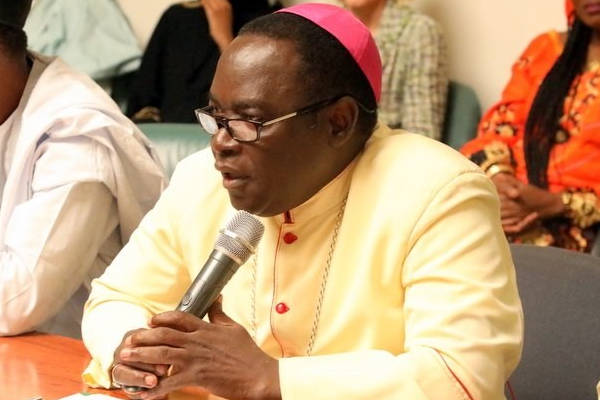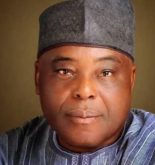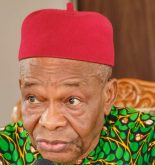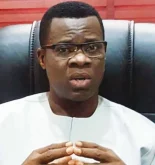By: Godknows Igali
It’s not a surprise that the attainment of the age of just 70 years by the Catholic Bishop of Sokoto Diocese, Mathew Hassan Kukah on 30th August, 2022 is a winding national headline in Nigeria. Indeed, the early show of appreciations, tellingly came from Nigeria’s President, Muhammadu Buhari, who described “the contributions of the priest as teacher, scholar and writer” in his three-score and ten years as “enrichment to national discourse”. Thereon, high and low, clergy and laity, have heaped encomiums from all directions.
2.0 Where It All Started
Wound back, in 1953, Kukah was born in the town of Anchuna, a farming community of ancient indigenous people of Zango Kataf in what is known as Southern Kaduna in Nigeria. This area that is known for its rich ethnology, his own group known as Ikulu or Bakulu as they prefer to be called are spread into two local government areas of Kachia and Kauru Local Government Areas. As an indigenous group, for hundreds of years, they lived peacefully with other nationalities, such as Atyap, Hausa, Kanuri, Gwari, and so on.
The inter-ethnic milieu created by demographic flows was bolstered by the rich agricultural land, particularly drained by the Kaduna River, one of the main tributaries of River Niger. This made the area one of most productive belts in all of the erstwhile Northern Nigeria region, especially at a time when agriculture was the mainstay of once thriving trans-Saharan trade and colonial economic activity. However, such cross-elasticity of populations has also been fraught with clashes of yellow shirts and purple skirts, idiomatically speaking. There was a lot of conviviality, but the moments of love lost and acrimony were not few. Zango Kataf became the nesting spot of crises of various dimensions, bordering on clash of cultures and religion, struggles over social rights and political inclusion as well as demand for access to economic opportunities. The stretched muscles amongst these ethnic groups therefore sadly led to violent crises on no few occasions; the February and May, 1992 crises in which over 500 lives were lost could be cases in point.
3.0 Knowledge and Activism Nexus
As his two forenames, Mathew and Hassan, portray, Bishop Kukah started life with experiences of growing up in a Christian-Muslim multi-faith ambience. The young Kukah etched for a lifestyle of positive neutrality and fight for truth and justice. Unsurprisingly, he started from a young age to be self-willed, outspoken and proactive against injustice, bad governance and social repression. This impelled him at personal level to a lifestyle of moral probity and frugality; in sobriety opting for celibacy and self-abnegation. As he started primary schooling at St. Fidelis Primary School, Zango, and later at then St. Joseph Minor Seminary, Zaria, and ultimately moving to St. Augustine Major Seminary Jos, he became more activist.
Even at the time of his formal ordination as a priest in December 1976, Kukah was known as a positive dissident, who had his own thoughts and a strident identity. This was same at the University of Ibadan, Nigeria’s premier ivory tower, where he attained his Diploma in Religious Studies and again at the highly-rated Pontifical Urban University in Rome. Since 1687 when ‘Urban’ was established, it has played a leading role for the theological education of catholic clergy and missionaries.
Still in search of knowledge and self-achievement, and in preparation for the great work ahead in service to man, Kukah himself has always voiced as very critical in service to God, he proceeded to the University of Bradford in the United Kingdom. This time, he went in for the Post-Graduate Degree in Peace Studies. This was a great metaphor for reconnecting with the environment in which he grew up in Kaduna and indeed in Nigeria as a whole where the endless search for the democratic ideal has become eluded by unending military hold on power.
University of Bradford itself originally started as Mechanics Institute in 1832 later became Bradford Institute of Technology in 1957 and attained the status of a full university in 1966 and is known for strong emphasis on research-based learning. Actually, Bradford was the first UK university to establish a Department of Peace Studies and still retains a high place as the world’s largest learning centre on the study of Peace and Conflict. Further aiming for the top in knowledge, he enrolled for a Doctorate degree at the London University’s School of African and Oriental Studies (SOAN).
In the English philosopher, Francis Bacon’s book, Meditations Sacrae and Human Philosophy, published in 1597, he had affirmed the immortal words: ” ipsa scientia potestas est” – Knowledge itself is power. Kukah no doubt imbibed that dictum quite early and never stopped studying. So even after his PhD, he went for post-doctoral work at the world’s two leading academic institutions, Oxford University in the United Kingdom and Harvard University in the United States of America.
4.0 The Intellectual and Moral Sway
In Kukah’s academic and ecclesiastical sojourn, he also became deeply imbedded in the study of political philosophy. Several great influences started to reinforce his own stubborn persona. One of these was obviously, the transcendentally radical thoughts of 16th century, Catholic scholar and priest, Dr. Martin Luther (1483-1546). A German priest who was part of what is known in Catholic traditions as “Augustinian Order’, Luther like his peers was given to a life of chastity, abstinence, frugality and prayers. Much more than that, he was rabidly averse to non-acceptable conducts, and inappropriate doctrine. At a time when the behemoth of the Holy Roman Empire was the single global power house, he stood up against the existing orthodoxy. Despite series of trials in the hands of Pope Leo X (1475-1521), Emperor Charles V (1500-1558) of the Holy Roman Empire, and other European potentates gathered at the “Council of Worms” in 1521, he refused to recant. Luther insisted that “I am bound by the Scriptures I have quoted and my conscience is captive to the Word of God. I cannot and will not recant anything, since it is neither safe nor right to go against conscience.”
In the related parallel, post Second World War (1939-1945) Latin America was replete of the symptoms of “failed” states. Apart from Brazil which was a Portuguese colony, all the rest of the big nations of the region are Spanish outposts since the 15th century. Political independence had come in the beginning of the 1800s. But for a long time, the region remained an immuration plagued by startling underdevelopment, political instability, weak institutional framework and the like. The area became particularly rife with military coups which they later exported to Africa.
By late 1950s renowned Economist turned politician Raúl Prebisch, from Argentina expounded what became “Dependency Theory” This tilt of political thought explained the spiral of stunted economic growth and its corollary effect on political and social harmony as founded on the unfavourable and unequal neo-colonial north-south order. Though essentially neo-Marxian, this explanation was not the least liberal-reformist in character.
Interestingly, the Catholic Church, which dominates faith in the region delved in quickly. Accordingly, Catholic scholastics like Kukah, took over the fight for “social concern for the poor and political liberation for oppressed peoples”. Shortly, the church became the actual moral conscience and arbiter of consciousness of disparities in society. These roles have continued to be played 60 years down the line and the six hundred and a half million people of that part of the world are today better for it, with several countries experiencing unprecedented growth and stability.
In general, Kukah also came to appreciate the more, the works of his theological constituency in such successful fights against Slavery, Slave Trade, Racism, Apartheid, Dictatorship and the like; churning out global icons as the Quakers, Dr. Martin Luther King, Archbishop Desmond Tutu, Archbishop Trevor Huddleston etc.
5.0 Truth, Justice and Peace Avatar
As Kukah rose steadily in his chosen clerical calling, so did he also become a voice of reckoning on the national discourse arena. In particular, his tenure as Secretary of the Catholic Secretariat saw him transform into becoming the neoclassical Liberation Theologian – a voice of the voiceless. Not unexpectedly, the country’s return to civilian rule, just as it was in Latin America and South Africa, as was the case with Tutu, occasioned his conscription by the hand of former President Olusegun Obasanjo to serve in the much-parroted Justice Oputa Commission. Led by that jurist of record, the Commission in which Kukah became a shining armour, in trying to establish the atrocious footprints of 29 years later of military rule before returning back to civilian democratic rule. Unfortunately, the studious chronicling and recommendations of that great work have become “oputarized” – now a satirical euphemism for government’s habitual inaction on important matters.
In quick succession, the same former President Obasanjo brought Kukah back to global limelight as he made him Secretary of the National Political Reform Conference in 2005. This was intended to assuage the national clamour for a new constitutional order crafted under a democratic setting unlike what the existing military whimsically trusted on the country. Although along with another jurist, Prof Niki Tobi, as Chairman, what inside sources describe as a “practical and balanced report”, this has again been condemned to bottom of shelves of drawers in government offices in Abuja. Still called to national service, Kukah was this time made Chairman of the Ogoni Reconciliation Committee. Perhaps the toughest of his state assignments, his mandate straddled between reconciling the Ogoni people and Shell Petroleum Development Company, which had been forced to exit the area in the aftermath of the judicial murder of environmentalist and writer, Ken Saro-Wiwa in November 1995. The related task, more delicate in nature was reconciliation between the families of Ogoni leaders who paid the supreme price under circumstances that have created unimaginable internal animus and group mental distress. His work on Ogoni has brought some level of peace and amity to the area from various ends. Nonetheless, this is an ongoing process.
Back-to-back, Kukah, now a maestro in issues of state-building and political order, was again co-opted into the Justice Mohammed Uwais Committee on Electoral Reform, set up by President Umaru Musa Yar’Adua (1951-2010) in 2007. In a trajectory of bad policy implementation, the pristine outcome of that exercise has largely again been relegated to accumulate dust; except that, it seems that aspects crept into the Electoral Act 2022
The 2015 General Elections, especially the Presidential ballot was critical to Nigeria’s survival as a nation. As a matter of fact, some doomsday prognosis, interesting enough, from one of the most advanced countries, singularly placed its reputation on the line by insisting that 2015 was the annus apocalypsis for Nigeria. Along with former President Abdulsalami Abubakar, the clergyman, without any loss of wits or vigour, jumped on the saddle to take on the onerous task of confidence-building and preventive engagement between main candidates and leading stakeholders to breed peace. They called themselves ‘National Peace Committee’ and still continues to function.
6.0 Higher Monastic Calling and Activism
On Friday 10th June 2011, Kukah was elevated to the rank of Bishop of Sokoto Diocese of the Catholic Church; a great approbatory mark of his works. Established since June 1953, Sokoto became a full diocese, eleven years later on Tuesday 16th June 1964. Kukah is actually its fourth Bishop covering the deep heartland of Islamic Nigeria: Sokoto, Kebbi, Zamfara, and Katsina States. Having himself been nurtured in an environment of religious cosmopolitanism, Kukah has so far squared up with dominant figures such as Sultan of Sokoto – Muhammadu Sa’ad Abubakar – to maintain appreciable levels of religious harmony in his area of coverage, except for isolated incidents as the shameful May 2022 murder of student, Deborah Samson.
Now in the vortex global fishbowl, this intrepid preacher man was In December 2020, handpicked by Pope Francis, himself a previously activist cleric when he was Archbishop of Buenos Aires, to serve as Member of the Dicastery for Promoting Integral Human Development. In the words of the Pontiff, this body, established in 2016, handles soft diplomatic “issues regarding migrants, those in need, the sick, the excluded and marginalized, the imprisoned and the unemployed, as well as victims of armed conflict, natural disasters, and all forms of slavery and torture”.
7.0 Societal Outreach
To incubate his life work of untiring service, in 2017, he birthed the Kukah Centre in Abuja. Its declaratory for “the attainment of a more humane, democratic and free society where citizens can live in real and true freedom unencumbered by any structures of exclusion on the basis of ethnic, religious, social status, economic or gender”
This policy think-tank and Centre for interfaith dialogue remains active with a wide roll-out of activities all year round.
8.0 Conclusion
In Christian teaching, 70 years is the prescribed age for entry into the realm of old-age and starting of eclipse of human life cycle. Encore, in most traditional African settings, this age symbolises the entry into the pantheon of the wise and sagely.
No doubt, like a skillful archer, he seems to have no plans to retreat, retract or recant. So, Kukah’s thoughts and voice remain sharp and clear, shrill and penetrating at the very fibre of Nigeria’s national life.
Come off! In the national political setting where several main players are advanced septuagenarians or even octogenarians, Bishop Kukah is best armed in pursuing more robustly both spiritual and national rebirth roles he sets out to involve in. In all, one thing that is sure, is that the best days, of this humble servant of God and adroit leader of men, are just at cockcrow.
In all, one thing that is sure, is that the best days, of this humble servant of God and adroit leader of men, are just at cockcrow.
Dr. Igali, a retired Ambassador is Board Member of Mathew Hassan Kukah Centre.




